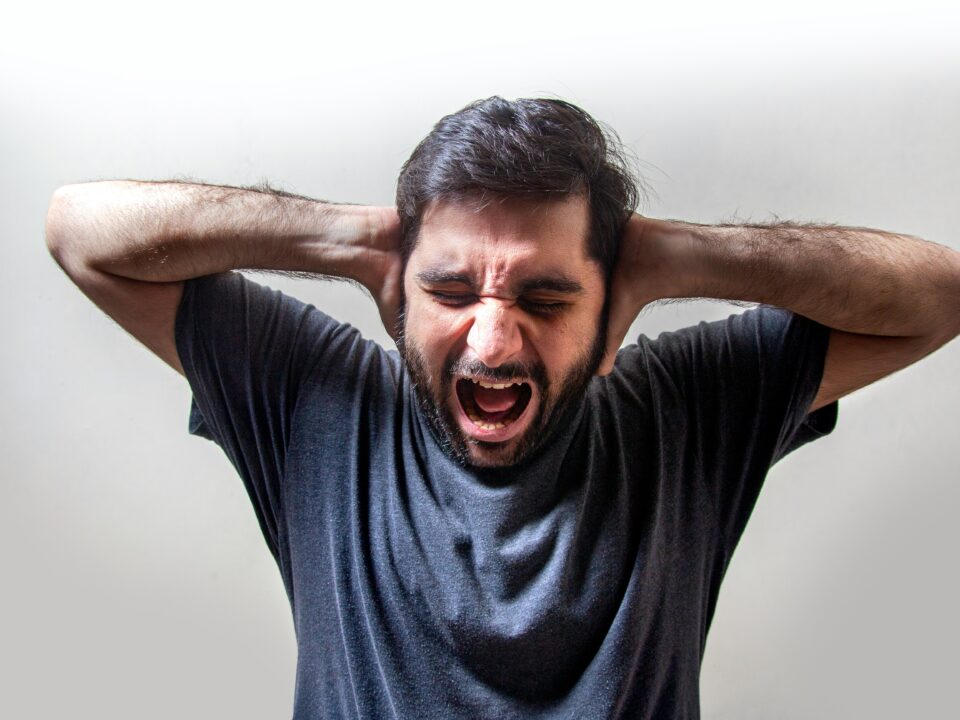Signs & Symptoms of Autism in Adult Men

Featured image by Visual Tag Mx, Pexels.com
Blog post updated on 27th July 2022.
Introduction
Autism is more commonly diagnosed in males than females; therefore, boys who have autism grow into men with autism.
According to the Young Men’s Health webpage about autism, “boys are 4 times more likely to be diagnosed with autism than girls.” The website has also listed the following traits that appear in teenage boys or young men with autism:
Social communication and interaction problems

Image by cottonbro studio, Pexels.com
- Lack of interest or feeling awkward about interacting with others.
- Avoiding eye contact.
- Difficulty with making friends.
- Being unable to use or read body language, gestures or facial expressions (although people with non-verbal autism may use hand gestures instead of talking).
- Saying inappropriate things at times.
- Having trouble expressing themselves with language, or not speaking at all (i.e., non-verbal autism).
Behavioural problems

Image by Andrea Piacquadio, Pexels.com
- Repetitive behaviours or body movements (e.g., hand flapping, jumping up and down).
- Echolalia (i.e., repeating words or phrases back to the person they are talking to or repeating parts of books, films or television programmes).
- Being super-focused on something (i.e., hyper-focus).
- Becoming upset if their daily routine is changed.
- Having really intense interests (such as learning everything about a certain topic or focusing on only one object or one film).
- Dislike of being touched.
- Becoming easily annoyed or very upset by certain noises or other sensory experiences such as textures, smells and the way things look.
- Looking at things in an unusual way.
Been There. Done That. TRY THIS!

Image by April Slocombe
There is practical information and advice on intricacy, dating, sex and marriage in ‘Been There. Done That. TRY THIS!’ An Aspie’s Guide to Life on Earth’ edited by Tony Attwood, Craig R. Evans and Anita Lesko (Chapter 9, pp.158 – 176). It says that “Many people with Asperger’s/HFA have difficulty understanding the complexities” of these issues. One example of a person who finds discussing these issues difficult is Richard Maguire, who has autism, despite him mentoring “lonely adults who want to be in love, marry and have sex” who are afraid of these things yet need them greatly. A good form of advice he has is to address and negotiate friendships first and then get into “the more complex and sexual aspects of relationships (p. 170).” At the time of writing his section for the book, Maguire has been married for 21 years to “a lovely empathetic lady through a shared interest, [their] Christian Faith.” He admits that “Staying married has not been easy” because he and his wife “have needed to learn to grow and develop [their] relationship over the years (p. 171).”
Research

Image by Ron Lach, Pexels.com
Several people have conducted research on temperament and character in men with autism spectrum disorder. The research was conducted on 66 men aged 18 – 63 years who have autism and a normal intelligence. There was also a comparison group. Both groups were required to complete questionnaires “to determine differences between individuals on seven dimensions of temperament and character, based on Cloninger’s psychobiological theory of personality.” The questionnaire consisted of 240 true or false statements, “four temperament scales (Novelty Seeking, Harm Avoidance, Rewards Dependence, and Persistence), three-character scales (Self-Directiveness, Cooperativeness, and Self-Transcendence), and 25 subscales.”
Signs or traits in men whether they have autism or not in the seven main dimensions of the questionnaire included the following:
- Novel stimulation, impulsive decision-making (also present in individuals with ADHD or ADD), extravagance and disorderliness in Novelty Seeking.
- Excessive worrying, pessimism, shyness, fear and fatigue in Harm Avoidance
- “A tendency to respond to signals of reward or social approval, social support and sentiment” in Reward Dependence.
- “Perseverance in spite of fatigue or frustration” in Persistence.
- “The ability to regulate and adapt behaviour to the demands of a situation in order to achieve personally chosen goals and values” in Self-Directedness.
- Being “generally agreeable in relationships” with other people rather than being “aggressively self-centred and hostile” in Cooperativeness.
- “Experiencing spiritual ideas, such as considering oneself as an integral part of the universe” in Self-Transcendence.
To compare results from both groups, the men in the ASD group “scored significantly lower” in the Novelty-Seeking, Reward-Dependence, Self-Directedness and Cooperativeness categories; and scored “significantly higher” in the Harm Avoidance category. There was no difference in the scores for the Persistence and Self-Transcendence categories from either group.
Autism and Sex Differences Webinar
Nat Hawley, our Head of Community, has hosted a webinar about autism and sex differences. The webinar covers the autism differences in males and females.
Summary
While teenage boys and young men with autism can experience the signs as described on the Young Men’s Health webpage on ASD as well as those outlined in the questionnaire, older men can experience difficulties in marriage or romantic relationships besides the traits in the study. Males with autism of all ages can experience all the signs and difficulties discussed throughout this blog post. If you yourself think you may have autism, you can take our free autism test for adults to see which traits you have.




